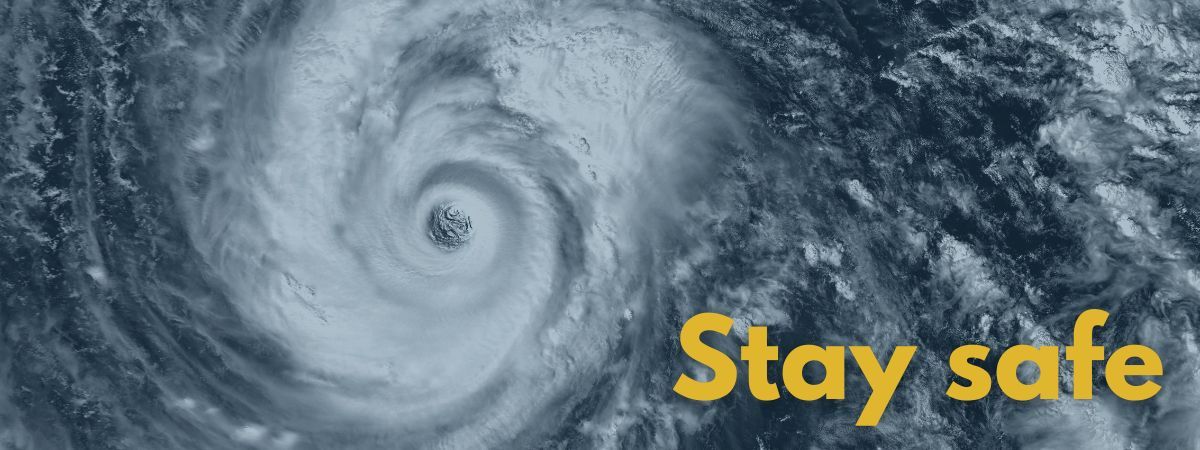Storms and Danos CARES

Hurricane season began on June 1 and ends on November 30, 2024. With Tropical Storm Francine in the Gulf of Mexico, know that the CARES disaster response team is prepared to assist employees that live in the path of and are affected by the storm. If you or a fellow employee are affected and need assistance, please reach out to your manager. Know that many are praying for the safety and well-being of you and your family in any storm’s aftermath.
Danos employees: we need your help by making sure your contact information is up to date. Make sure your cell number and/or emergency contact information is correct in Thelma, or send updated information to your manager. This will enable the safety team to send you alerts ahead of a storm, and it will allow someone from the CARES disaster response team to reach out to you following severe weather events in your area.
Below are a few quick tips for hurricane preparedness:
- Emergency Kits: Make sure you have a well-stocked emergency kit that includes water, non-perishable food, medications, flashlights, batteries and first aid supplies, as well as food and extra water for your pets.
- Evacuation Plans: Know your evacuation routes and have a plan in place for where you will go if you need to leave your home.
- Communication: Keep a list of emergency contacts, and make sure your family knows how to reach each other in case of separation (e.g. a single point of contact through a family member or friend that does not live in the affected area). Maintaining a hard copy of contact information is vital in case you do not have access to your cell phone.
- Secure Property: Ensure your home is secure by trimming trees, securing loose items outside and installing storm shutters and/or covering windows and doors if necessary.
Please remember, often the most dangerous time of a hurricane is after the storm has passed. There are many risks that need to be taken into consideration. Here a are a few:
Flooding and Water Contamination
- Risk: Floodwaters often remain for days or weeks after a hurricane, which can pose drowning risks and contain harmful contaminants like sewage, chemicals, and debris.
- Safety Tip: Avoid wading or driving through floodwaters. Boil water or use bottled water until the water supply is declared safe.
Downed Power Lines
- Risk: Strong winds and flooding can bring down power lines, posing electrocution hazards.
- Safety Tip: Stay away from any downed lines and report them immediately to authorities.
Carbon Monoxide Poisoning
- Risk: Using generators indoors or in poorly ventilated areas can lead to carbon monoxide buildup, which is deadly.
- Safety Tip: Operate generators outdoors and far from windows, doors, or vents.
Structural Damage
- Risk: Buildings may be unstable due to weakened foundations or roofs, increasing the risk of collapse.
- Safety Tip: Avoid entering any structure that shows signs of severe damage until it has been inspected by professionals.
Debris
- Risk: Hurricanes leave behind fallen trees, broken glass, and sharp metal objects that can cause injury.
- Safety Tip: Wear protective clothing, gloves, and sturdy shoes while cleaning up debris.
Review the 2024 Caring and Preparing article or download the family hurricane preparedness guide.
Handy storm resources:
Hurricane Cleanup JSA
Windy
National Hurricane Center
